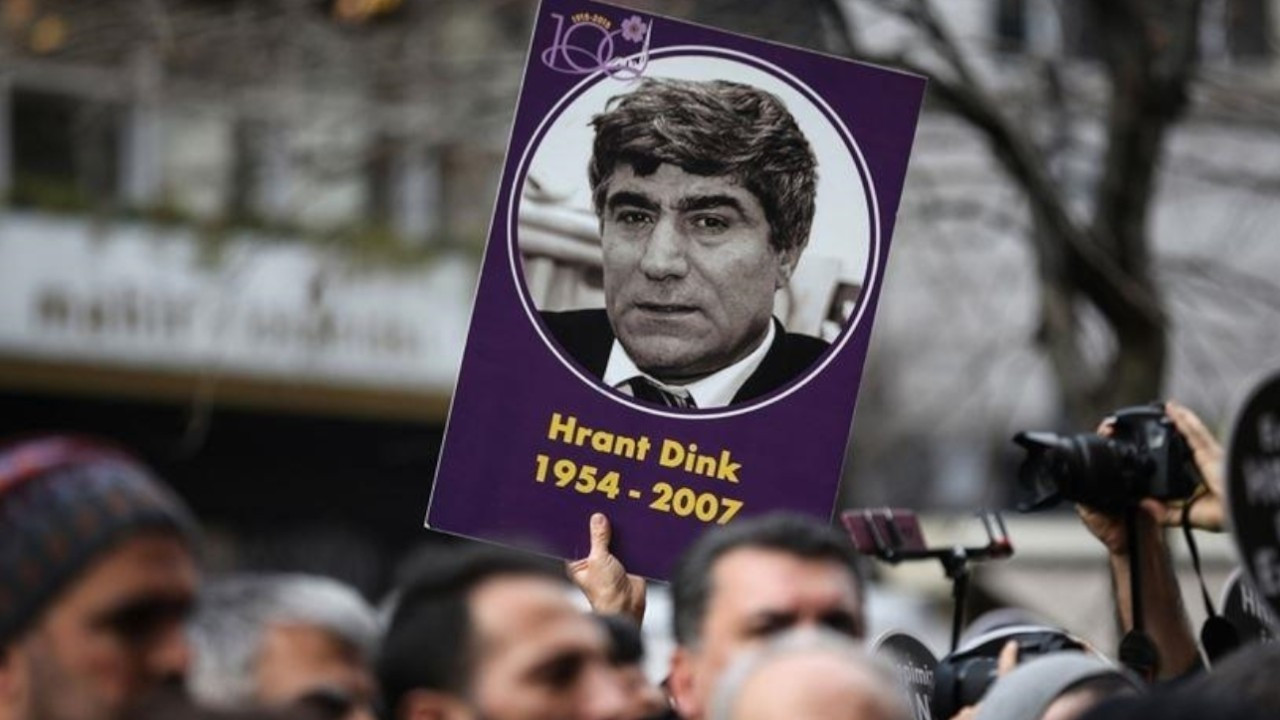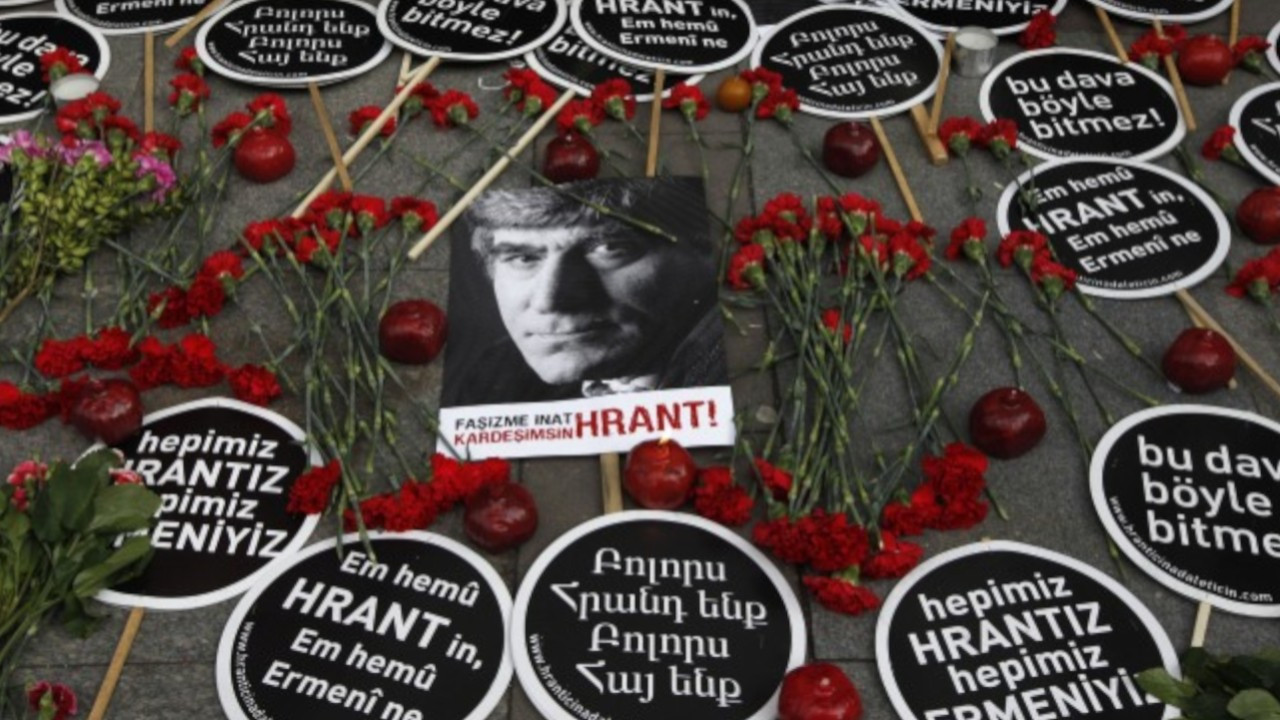Turkish court rules Dink's murder was carried out in line with Gülen network's goals
An Istanbul court overseeing the murder case of Hrant Dink on March 26 ruled that the Turkish-Armenian journalist's murder was carried out in line with the goals of the Gülen network. The court gave jail sentences to former police chiefs and gendarmerie officers for covering up the plot to kill the renowned Turkish-Armenian journalist in 2007. Dink family's lawyers deemed the court's decision “insufficient” and “inaccurate,” saying it does not expose the murder plot “with all of its aspects.”
Duvar English
The final hearing of the murder case of prominent Turkish-Armenian journalist Hrant Dink was held at the Istanbul 14th Heavy Penal Court on March 26.
A total of 77 people were on trial over their role in the killing of Dink more than 14 years ago. The court separated the files of 13 fugitive suspects, including US-based Islamic cleric Fethullah Gülen, on the grounds that their defense statements were not delivered.
It convicted 27 suspects in the case on charges including accessory to murder, membership of a terrorist group as well as faking and destroying documents, whereas it acquitted 33 others in the case, state-run Anadolu Agency said.
Two former police chiefs have been given aggravated life imprisonment, whereas four others have been sentenced to life imprisonment.
In addition to the six suspects who already in custody, the court ruled for the imprisonment of another six suspects.
Editor of the bilingual Turkish-Armenian weekly Agos and then Turkey's best known Armenian voice abroad, Dink was shot dead as he left his Istanbul office in January 2007. After the murder, tens of thousands gathered in central Istanbul to mourn.
In 2011, Dink's assassin Ogün Samast was sentenced to nearly 23 years in prison by a juvenile court. He was 17 when the killing took place. The following January a man named Yasin Hayal was sentenced to life in jail for instigating the killing.
Among those convicted by the court on March 26 former police intelligence chief Ali Fuat Yılmazer received a jail sentence without parole for murder. Another police chief, Ramazan Akyürek, was also handed a life sentence.
The court ruled that the murder was carried out in line with the goals of the Gülen network, which the Turkish authorities refer to as the Fethullahist Terrorist Organization (FETÖ).
The Turkish government says the Gülen network had widely infiltrated Turkey's police and other state institutions over decades.
Lawyers deem court decision 'insufficient' and 'inaccurate'
Dink family's lawyers released a statement in front of the Çağlayan courthouse, deeming the court's decision “insufficient” and “inaccurate.” They said that the decision does not expose the murder plot “with all of its aspects.”
“The decision does not concretely expose who gave the order to kill. This decision consists of serious mistakes and does not bring to light Dink's murder with all of its aspects,” they said, adding that they will take the decision to the appeals court.
“Friends of Hrant Dink” also held a press statement in front of the courthouse saying their struggle for justice has not come to an end as all of the details of the murder plot had not been uncovered.
“We are saying once again: Those who gave the order to kill should be put on trial. This [court's] decision has not put an end to the struggle for justice, but maybe put it on a different stage. This case will not come to an end without us saying 'It is over,'” the press statement said.
Agos editor-in-chief Yetvard Danzikyan also commented on the court's decision, saying the “mechanism that killed Hrant Dink has not been fully exposed.”
Erol Önderoğlu, Reporters Without Borders (RSF) representative to Turkey, similarly said that the actors involved in the state have not been involved in the trial, which is why the court's decision is “inadequate.”
“This decision has shown us that the actors involved in the murder have not been included [in the trial] and there have been some manipulations for various political accounts,” he said.
In 2010, the European Court of Human Rights ordered Turkey to pay 100,000 euros ($118,000) to Dink's family in compensation, saying the authorities had failed to adequately protect Dink even though they knew ultra-nationalists were plotting to kill him.
Dink had worked for reconciliation between Christian Armenians and Muslim Turks and was repeatedly prosecuted for insulting "Turkishness" over his comments on Armenian identity and the massacres of Armenians by Ottoman Turks in 1915.

 Turkish court releases former intelligence officer who knew about plot to murder Hrant DinkDomestic
Turkish court releases former intelligence officer who knew about plot to murder Hrant DinkDomestic The continuous murder of Hrant DinkWorld
The continuous murder of Hrant DinkWorld